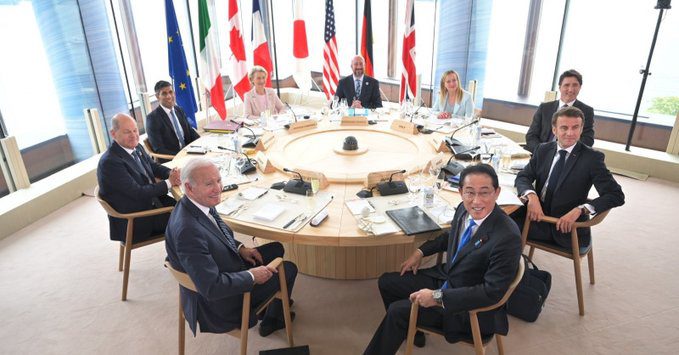
Photo credit: europa.eu
Russia’s oil revenues have rebounded in March–April from levels reached in January–February 2023, rising to the highest level since November, even as the G7 leaders stated at the conclusion of the Hiroshima Summit that the price cap is working.
The latest analysis from the Centre for Research in Energy and Clean Air (CREA) shows that the price cap policy had a good start after it came into force in December 2022. However, it has since lost “credibility” as the members of the Price Cap Coalition failed to revise price levels and enforce the policy, in accordance with CREA, which notes that the enforcement of the price cap doesn’t work in the Pacific trade from Russia’s Far Eastern ports to China.
Export earnings fell substantially in the first months since the EU’s crude oil import ban took effect in early December.
“The rebound was driven by an increase in export prices, enabled by the failure of the U.S., EU and other price cap coalition countries to lower the level of the caps, contrary to the policy, and due to failures in enforcing the crude oil price cap,” said the Finland-based Centre for Research on Energy and Clean Air (CREA).
The price cap coalition holds every advantage, as Russia continues to rely on European-owned and insured tankers for most of its oil exports. The share of tankers covered by the price cap in crude oil shipments out of Russia stayed around 54% in April. For oil products and chemicals, the coverage of the price cap coalition is above 60% which shows the strong leverage the policy has if price levels are lowered and enforced properly to reduce Russia’s export earnings, according to researchers.
Russia has made an estimated EUR 58 bln in export revenue on seaborne oil since the EU import bans and the price caps entered into force, with the majority of this oil carried on European-insured or owned tankers. Russian revenues could have been slashed by EUR 22 bln (37%) by setting the price cap for crude oil at USD 30 per barrel and revising the caps for oil products accordingly, as also said by the analysts of CREA.
“Unless the price cap coalition takes action, changes to Russia’s oil taxation structure will force the price of Russian crude oil closer to international benchmarks, leading to further recovery of Russia’s oil revenue, which would damage the impact and credibility of the sanctions.
Strengthened enforcement of the price caps and lower price cap levels are needed if the architects of the oil price cap policy want it to function as a credible policy and to lower Russia’s oil export revenues. Lowering the price cap would reduce inflationary pressure on oil prices, a key objective for policy makers, as well as limit Putin’s ability to fund the war,” as the analysis concludes.


